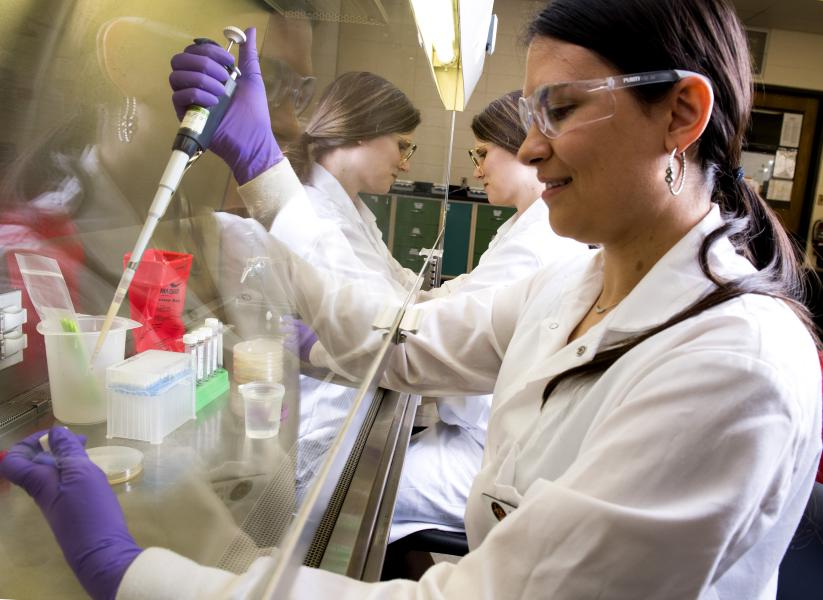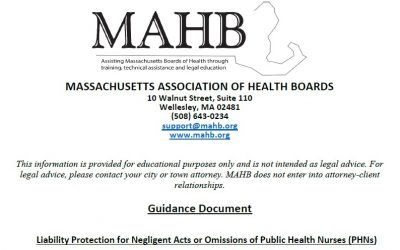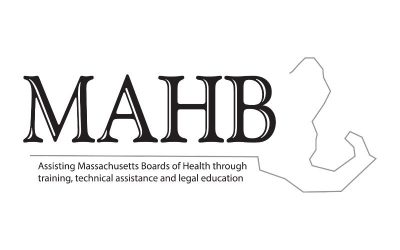Massachusetts Association of Health Boards Guidance Document, Local Boards of Health Ordering Food Safety Consultant, January 1, 2025
This guidance document is for legal education only and does not constitute legal advice. For legal advice, please consult with your municipal attorney. To download a copy of this Guidance Document, please click on this PDF Link — MAHB GUIDANCE DOCUMENT – Food safety Consultants
ISSUE: When, why and how does a local board of health (LBOH) have the prerogative to order a restaurant to hire a food safety consultant?
INTRODUCTION: There may be circumstances where a LBOH encounters a food service establishment that is noncompliant with local and state regulations. Generally, such situations are remedied by a simple discussion with the management and a follow-up compliance inspection conducted after a short period to assure that the issues are corrected.
However, there are occasional situations where the staff and management are consistently noncompliant, even after an inspection by the health department and the issuance of an order to correct.
In these situations, it is good practice for the inspector to bring this to the attention of the LBOH and to suggest that the LBOH issue an order to the establishment’s management for a hearing on the alleged violations. Normally, after such a hearing, the health inspector will recommend corrective action for the establishment in order to come into compliance with the food code. Some situations may require an immediate closure of the establishment[1] until such time as the BOH has an opportunity to evaluate the situation and determine what corrective action is warranted. However, generally the above-described hearing process by the board of health can minimize these emergency closures.
If the food code violations are extremely serious, the LBOH may consider revoking the establishment’s food service permit. This action requires prior notice to the establishment and an opportunity for the establishment to be heard. These are constitutionally required due process rights held by the establishment’s permit holder.
One middle-ground remedy available to the BOH is for the board to order the establishment to retain the services of a food safety consultant to assist the establishment in coming into compliance. This frequently occurs when a LBOH concludes that a restaurant is operating with serious code violations, persistent noncompliance, improper food handling practices, and/or inadequate food safety plans. In these cases, they may require that the establishment hire a Food Consultant to:
- Assess and correct food handling and storage procedures.
- Implement proper food safety and sanitation protocols.
- Train staff on food safety compliance and public health risks.
- Assist with structural or operational changes to meet applicable health standards.
PROCEDURE: The Board of Health can issue an Order to Correct that may include requiring a restaurant to retain a qualified Food Consultant (“Consultant”) to address specific deficiencies. This order would be issued to ensure that health risks are mitigated and that the establishment complies with state and federal food safety laws. This order can address the frequency and duration of consulting by the Consultant, the scope of training and supervision by the Consultant and the frequency and nature of mandatory reporting by the Consultant to the BOH or its agent.
The range of services to be ordered might include trainings for all staff in food safety, formal classes to be conducted by the Consultant, hands on observation and instruction, or any remedial measures the BOH feels are necessary to rectify the situation. These services can range from a one-time class and discussion by the Consultant to an order to have a Consultant on premises at all times, as a prerequisite to operating the business. This would be an extreme measure, but it has been employed by at least one LBOH in Massachusetts.
While MAHB frequently states that LBOH enforcement processes are to achieve compliance, not punishment, it may be that it is the opinion of the LBOH that the only way to protect the public’s health is through such an extreme measure.
The order would generally be based on documented violations, including but not limited to unsanitary food handling, pest infestations, failure to comply with food preparation temperature standards, and/or failure to maintain proper hygiene practices. The order would also permit the restaurant to remedy the deficiencies by working with a Consultant to ensure that it gets to compliance.
If an establishment is ordered to hire a Consultant, it would have the right to comply by implementing the corrective measures suggested by the Consultant or appeal the order to a court of competent jurisdiction as provided under Massachusetts law.
If a restaurant is so badly out of compliance that, in the opinion of the BOH, allowing it to operate may be injurious to the public health, the agent of the board “shall destroy (food) that may harm the public, remove or prevent the same (from being served) as the case may require, … [if the food poses the risk of] … conveying infection or contagion or of creating sickness…” G.L. c. 111 §122. This statute provides that “[w]hoever violates any such regulation shall forfeit not more than one thousand dollars.” The BOH can fine the business up to $1000 per occurrence.[2]
STATUTORY/REGULATORY AUTHORITY: The legal authority for a LBOH to require a restaurant to hire a Consultant derives from the State Sanitary Code. This regulatory authority is in addition to the statutory authority in the nuisance statute, discussed above, G.L. c. 111, §122, 123. The regulatory authority is pursuant toto 105 CMR 590.000, titled “State Sanitary Code Chapter X: Minimum Sanitation Standards for Food Establishments.”
105 CMR 590.000 et seq. – The code sets forth food safety requirements for food establishments. It incorporates the 2013 Federal Food Code and adds some specific Massachusetts requirements. These include the LBOH’s authority to enforce the code. This enforcement authority implicitly includes requiring a Consultant if the establishment is not meeting the food code requirements included in the federal and state regulations.
Chapters 2 and 3 of the federal food code identify five major risk factors related to employee behaviors and preparation practices in retail and food service establishments that contribute to foodborne illness, and the code vests oversight, risk mitigation, and enforcement authority with the LBOH. The major factors addressed are:
- Improper holding temperatures;
- Inadequate cooking, such as undercooking raw shell eggs;
- Contaminated equipment;
- Food from unsafe sources; and
- Poor personal hygiene.
If an establishment has ongoing violations, or poses a significant health risk, the LBOH may issue orders to protect the public health, including retaining a Consultant to correct the situation. This section, like all others under the State Sanitary Code, Chapter X, is inclusive of and in harmony with the 2013 FDA Food Code.
LOCAL MUNICIPAL REGULATIONS: In addition to the sanitary code provisions discussed above, LBOHs may have their own specific local regulations or ordinances regarding public health standards and enforcement actions pursuant to G.L. c. 111, § 31[3]. The legal authority to require a Consultant can be included in local board of health regulations.
Currently, there are no specific qualifications and/or certifications required in State law for Consultants. However, best practice reveals the qualifications and certifications a Consultant should possess. in order to properly advise on food safety, sanitation, and regulatory compliance. As mentioned above, a LBOHs can enact a local regulation that proscribes locally required qualifications and certification for a Consultant.
These may include any or all of the following qualifications and available certifications:
- Certified Food Safety Manager (CFSM): Under 105 CMR 590.000, the State Sanitary Code, at least one person in a food establishment must be a certified food safety manager, and the consultant should have this certification depending on their role, in order to be in a position to assist the CFSM who is employed by the establishment.
This certification could also be beneficial for the credibility of a Consultant, particularly if their services include advising on food safety practices.
- It is obtained through recognized organizations, like the National Restaurant Association (ServSafe), the American National Standards Institute (ANSI), and other accredited programs.
- Food Protection Certification: In addition to the CFSM, food consultants may be required to have a Food Protection Manager Certificate or equivalent credentials to demonstrate proficiency in food safety practices. This ensures that the Consultant is well-versed in the regulations that govern food handling and sanitation.
- Experience in Food Safety and Sanitation: While specific academic credentials are not strictly required, a consultant’s background in food safety, health inspections, or restaurant operations is typically valued. Relevant experience might include:
- Past work in food safety auditing, restaurant management, or regulatory enforcement;
- Training in hazard analysis and critical control points (HACCP), particularly in smoked food, seafood and sushi establishments.;
- Proof of qualifications in food handling standards in Massachusetts.
- Industry-Specific Credentials: These industry-specific training certifications are beneficial, particularly for consultants advising restaurants on risk management, food safety protocols, or foodborne illness prevention:
- HACCP Certification (Hazard Analysis and Critical Control Points);
- ServSafe Manager or Food Handler Certification; and
- Allergen Training Certification.
For any further technical assistance, please feel free to reach out to us at support@mahb.org.
[1] G.L. c. 111, § 31 states in relevant part: “If the board of health determines that an emergency exists, the board or its authorized agent, acting in accordance with section 30 of chapter 111, may, without notice of hearing, issue an order reciting the existence of the emergency and requiring that such action be taken as the board of health deems necessary to address the emergency…”
[2] The determination of what constitutes an “occurrence” is open to the BOH to define in its order. It could be defined as per day, per event, or both, at the board’s discretion.
[3] G.L. c. 111, § 31 states in relevant part: Boards of health may make reasonable health regulations. A summary which shall describe the substance of any regulation made by a board of health under this chapter shall be published once in a newspaper of general circulation in the city or town, and such publication shall be notice to all persons. … Whoever, himself or by his servant or agent, or as the servant or agent of any other person or any firm or corporation, violates any reasonable health regulation, made under authority of this section, for which no penalty by way of fine or imprisonment, or both, is provided by law, shall be punished by a fine of not more than one thousand dollars.
ADDITIONAL Information not included in the above pdf guidance document is given below.
Public Health Food Safety – A Brief Primer
Public health food safety in the United States is a critical aspect of public health that focuses on ensuring the safety and quality of the food supply to protect the public from foodborne illnesses and other health hazards associated with contaminated or improperly handled food. It involves a coordinated effort by various government agencies, industry stakeholders, and public health organizations to establish and enforce standards, conduct inspections, provide education, and respond to food safety incidents.
Key components of public health food safety in the United States include:
-
Regulation and Oversight:
- The Food and Drug Administration (FDA) and the United States Department of Agriculture (USDA) are the primary federal agencies responsible for regulating and overseeing food safety.
- The FDA oversees the safety of domestic and imported food products, except meat, poultry, and certain egg products, which fall under USDA jurisdiction through its Food Safety and Inspection Service (FSIS).
- The Centers for Disease Control and Prevention (CDC) play a vital role in monitoring, investigating, and responding to foodborne illness outbreaks.
-
Standards and Guidelines:
- Setting and enforcing food safety standards, such as safe handling practices, processing, and labeling requirements.
- Implementing the Food Safety Modernization Act (FSMA), which emphasizes prevention of contamination rather than just responding to foodborne illnesses.
-
Inspections and Compliance:
- Conducting routine inspections of food processing facilities, distribution centers, and retail locations to ensure compliance with safety regulations.
- Evaluating food import processes and foreign facilities to ensure imported foods meet U.S. safety standards.
-
Research and Data Collection:
- Conducting research and collecting data on foodborne pathogens, contamination sources, and outbreak patterns.
- Using surveillance and epidemiological tools to track and analyze foodborne illness outbreaks.
-
Education and Outreach:
- Providing educational resources and training for food industry workers, public health professionals, and consumers about safe food handling and preparation practices.
- Developing public awareness campaigns to promote understanding of food safety issues.
-
Response and Recalls:
- Coordinating responses to foodborne illness outbreaks, including identifying contamination sources and implementing corrective measures.
- Managing food recalls to remove contaminated products from the market and inform consumers.
Overall, public health food safety in the United States aims to reduce the incidence of foodborne illness and ensure that food is safe, nutritious, and accessible to all.




0 Comments